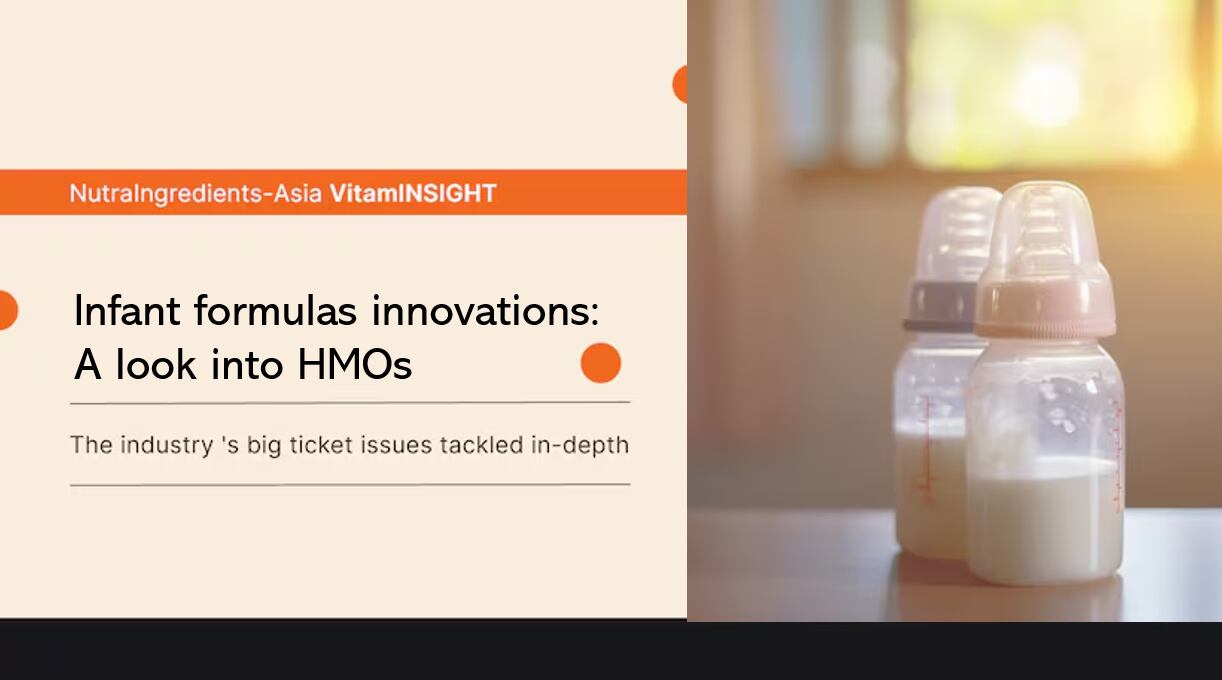The clinical trial, which took place in Singapore, assessed whether the supplementation of Bifidobacterium longum NCC3001 could improve perinatal anxiety and depressive symptoms.
Perinatal is the stage where a woman is pregnant up until a year after giving birth.
Writing in Scientific Reports, the researchers from Nestle Research, Nestle Institute of Health Sciences, Nestle Product Technology Center, and Singapore Institute for Clinical Sciences, reported no differences between subjects who took probiotics and placebo.
The trial involved 184 women who entered the trial when they were between 28 and 32 weeks of gestation and lasted until 12 weeks after they had given birth.
These women also scored at least five on either the Depression- or Anxiety subscales of the Hospital Anxiety and Depression Scale.
They were randomised into three groups, receiving either 1) probiotics during both pregnancy and postpartum periods, or 2) placebo during pregnancy and probiotics during postpartum, or 3) placebo throughout both periods.
The probiotics given were in the form of a dry powder stick containing 10bn CFU of Bifidobacterium longum NCC3001.
Effects of the probiotics on the women’s mood and level of stress were assessed using questionnaires.
They include the Edinburgh Postnatal Depression Scale (EPDS), the state subscale of the State-Trait Anxiety Inventory (STAI-S), Hospital Anxiety and Depression Score (HADS), Parenting Stress Index (PSI), and Pittsburgh sleep quality index (PSQI).
The higher the scores, the more severe the mood symptoms and vice versa.
Saliva samples were also collected to measure cortisol levels.
Key findings
Findings showed that in general, scores of mood related symptoms had lowered overtime for all three groups.
“The general trajectory of mood-related symptoms across measures and timepoints showed higher scores (suggesting more symptoms) in the prenatal period and early postpartum period followed by a gradual lowering of scores (mood improvement).
“Across all timepoints, there was a wide variance in scores in all groups. Further, individual participants’ scores often varied substantially between sessions,” said the researchers.
However, women who took probiotics be it at the pregnancy or postpartum phase, did not show a significant improvement in mood scores as compared to those on placebo.
This could be seen from their scores for Edinburgh Postnatal Depression Scale (EPDS).
Improvement in EPDS score was the greatest in women who took probiotics after giving birth, with the EPDS score down 3.3 points from 8.6 to 5.3.
This is followed by those who took placebo during pregnancy and postpartum, where the EPDS score was down 2.6 from 7.7.to 5.1 points.
The least improvement came from the group that took probiotics during pregnancy but placebo after giving birth - as their EPDS score fell by only 1.5 from 7.2 to 5.7.
A similar trend was also seen for the state subscale of the State-Trait Anxiety Inventory (STAI-S) score.
Similarly, the greatest improvement was seen in women taking probiotics after giving birth, followed by those who took placebo, and those who took probiotics during pregnancy and placebo after giving birth.
All three groups exhibited a reduction in salivary cortisol concentration but no significant differences were detected.
“In the current study, we observed no significant differences between groups for any mood outcomes in late pregnancy or across the postpartum period until 12 weeks post-delivery.
“Of note, there was wide variance between participants, as well as substantial within-person variability in mood scores over the course of the study,” the researchers concluded.
Earlier supplementation might help?
For future studies, the researchers said that probiotics supplementation could start at an earlier phase for potentially effective results.
In the current study, probiotics supplementation was given during the third trimester - which might have been “too late” to bring about a significant impact.
“Future studies should also consider starting the intervention earlier in pregnancy or preconception, as a preventative approach to reduce the risk of perinatal mental health problems from early pregnancy onwards may be more effective than reducing symptoms which may have already started in pregnancy,” said the researchers.
They also pointed out the need for deeper understanding of the unique gut microbiome of pregnant women.
In the current study, the researchers said that after the intervention was over, they did not detect the presence of the probiotic strain in all women who had taken probiotics.
As such, they said it was possible that probiotic retention may be affected by pregnancy and childbirth.
“Gaining a deeper understanding of the microbial ecology in the gut of pregnant women could also provide valuable insights for improving the retention of this specific strain, and thus will help to design more efficacious solutions to alter the gut microbiota and increase colonisation,” they said.
Existing findings
In fact, when it comes to maternal mood, there has been limited findings on how probiotics could be useful.
The researchers pointed out that to date, only one clinical trial by Slykerman et al in 2017 has described its benefits on maternal mood.
“To date, only one clinical trial using probiotics has described benefits on maternal mood, with lower depression and anxiety scores, albeit measured retrospectively as a secondary outcome; whereas others have not found any significant changes,“ the researchers said.
They added that the probiotic strain NCC3001 was chosen for the current trial as it has been shown to improve the mood of adults suffering from irritable bowel syndrome (IBS), as well as relieving perceived stress in healthy adults.
Source: Scientific Reports
The impact of ingestion of Bifidobacterium longum NCC3001 on perinatal anxiety and depressive symptoms: a randomized controlled trial
DOI: 10.1038/s41598-025-95651-1.
Authors: Fries LR et al




